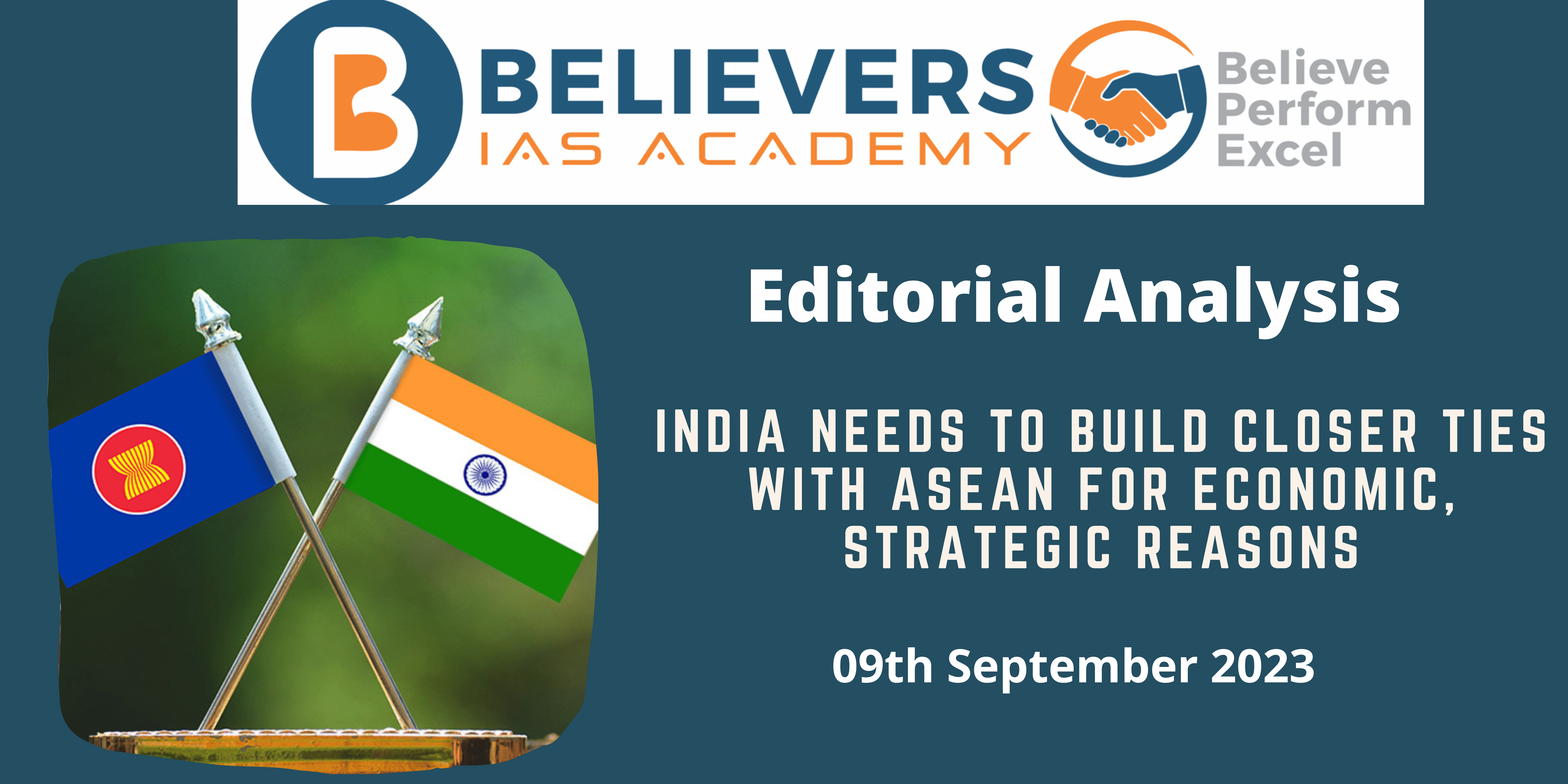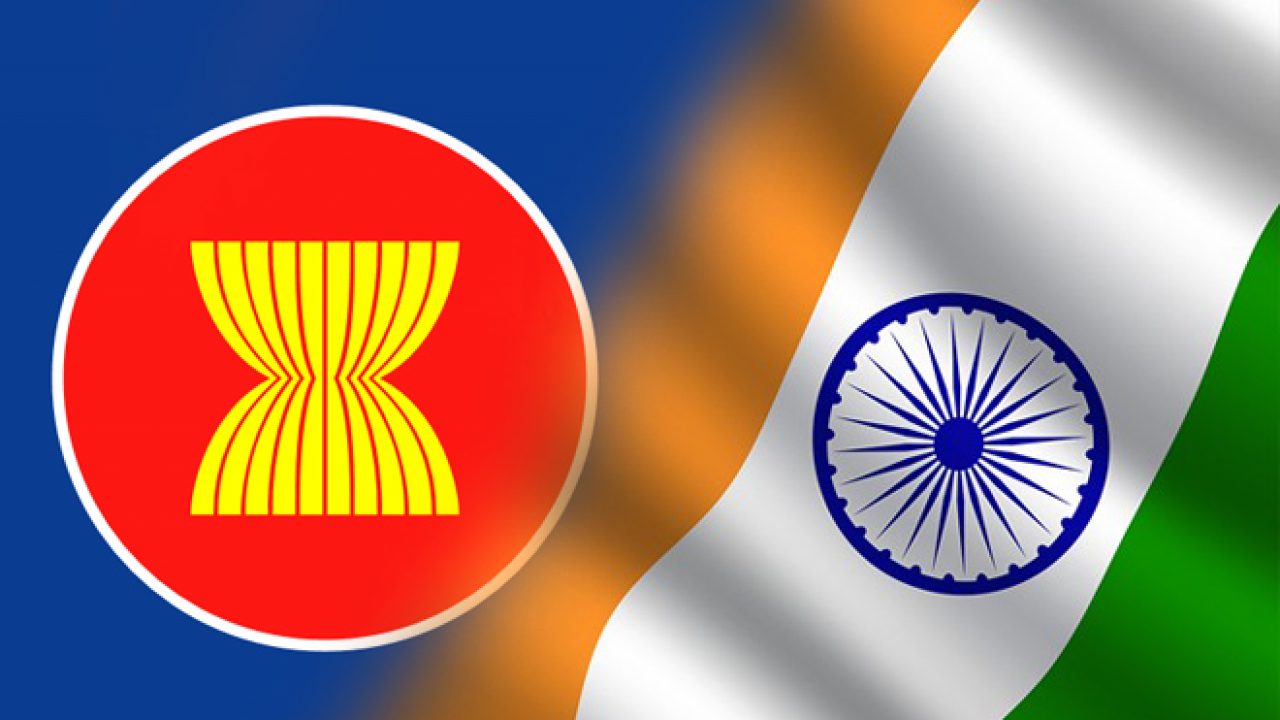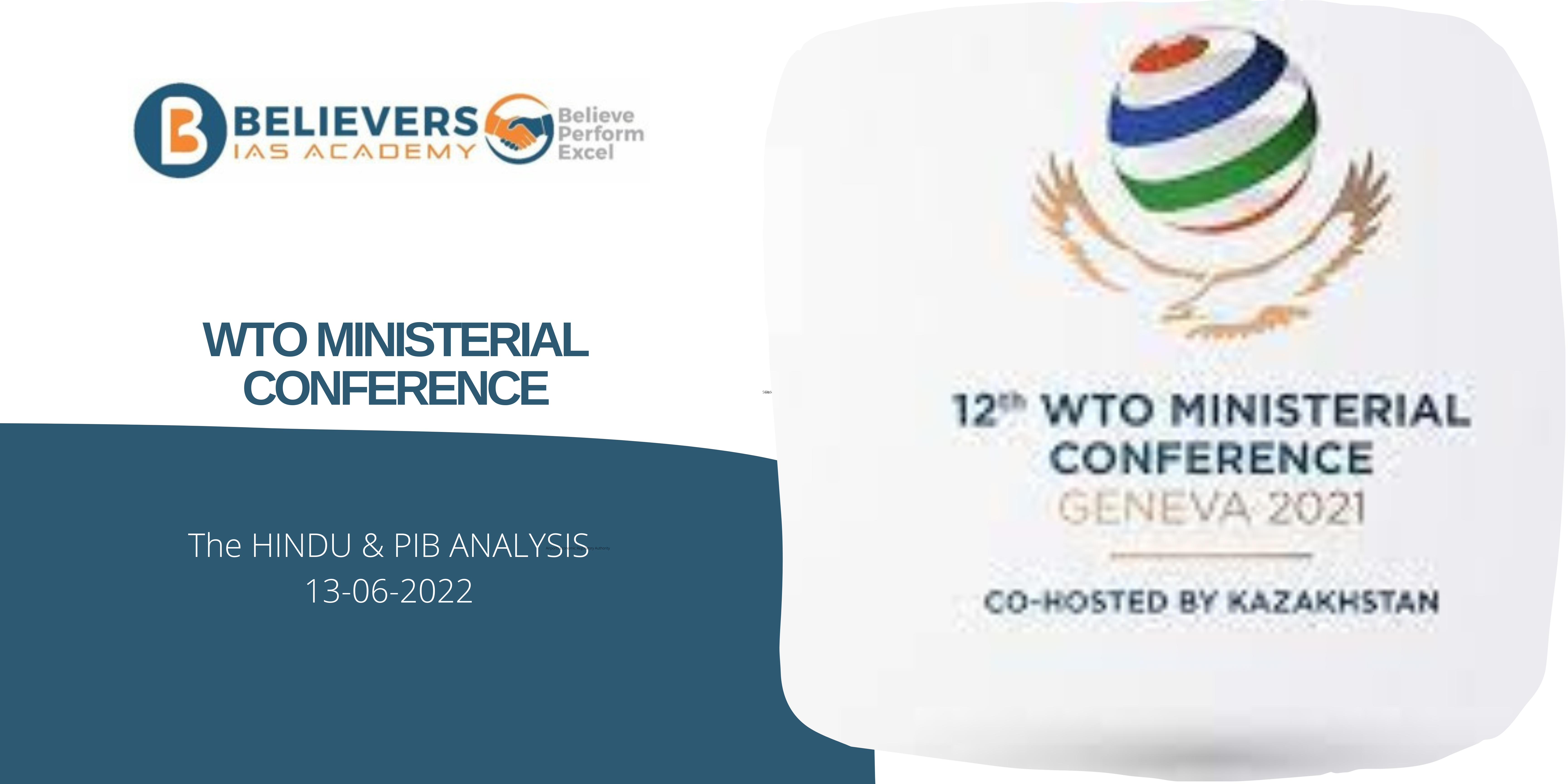India needs to build closer ties with ASEAN for economic, strategic reasons
Context:
Prime Minister Narendra Modi’s recent visit to Jakarta for the annual ASEAN-India summit signifies India’s efforts to strengthen its relationship with the economically significant Southeast Asian nations. With India holding the presidency of the G-20 summit, this visit was strategically timed to solidify traditional ties with neighboring Asian economies amid global trade uncertainties and challenges.
Relevance:
GS-02 (International relations)
Prelims:
- ASEAN
- UNCTAD
Mains Question:
- Explain India’s strategic and economic interests in fostering closer ties with ASEAN countries, particularly in the context of global trade uncertainty and geopolitical tensions. (150 words)
Dimensions of the Article:
- Global Trade Uncertainty and Shared Vulnerability
- India’s Strategic Messaging and Reliability
Global Trade Uncertainty and Shared Vulnerability
- The current global trade landscape is marred by uncertainties and negative factors that could impact economies worldwide. As highlighted by the United Nations Conference on Trade and Development (UNCTAD) in its ‘Global Trade Update,’ the outlook for global trade in the latter half of 2023 appears pessimistic. Factors such as downgraded global economic forecasts, persistent inflation, financial vulnerabilities, and geopolitical tensions are looming threats.
- In this context, the ASEAN-India summit’s joint leaders’ statement on ‘Strengthening Food Security and Nutrition in Response to Crises’ underscores the shared vulnerability that the region faces concerning heightened global food insecurity. Multiple factors have exacerbated this insecurity, including the conflict in Ukraine, the effects of climate change, and national policy responses to inflationary pressures.
- India’s recent restrictions on rice exports have raised concerns, particularly as prices of this regional staple have reportedly reached a 15-year high. The onset of an El Niño event, historically associated with disruptive weather patterns, adds to the region’s uncertainty. These developments understandably make ASEAN leaders cautious.
India’s Strategic Messaging and Reliability
- During his visit, Prime Minister Modi emphasized the importance of a rules-based post-COVID-19 world order and a free and open Indo-Pacific. These messages were primarily directed towards ASEAN members who are increasingly uneasy about China’s assertiveness and territorial claims in the South China Sea. India’s implicit message to ASEAN is that it can be a reliable long-term strategic and economic partner without territorial ambitions that might threaten the region’s stability.
- India also positioned itself as a voice to amplify the concerns of the Global South. It stressed that mutual cooperation would be beneficial for all parties involved. As India grapples with an underwhelming free trade agreement (FTA) with the ASEAN nations, the importance of its trade relations with Eastern economies cannot be overstated. Trade volumes have increased, but a significant trade deficit exists, with imports surpassing exports. Concerns have arisen that Chinese goods are leveraging lower tariffs under the FTA to enter the Indian market, leading to a review of the agreement, expected to conclude in 2025.
Way Forward:
- Trade Diversification: India should focus on diversifying its trade basket with ASEAN countries, emphasizing the export of value-added goods.
- Strategic Partnerships: Building strong strategic partnerships with ASEAN members, particularly those concerned about China’s actions, should remain a priority for India.
- Regional Stability: India can play a role in promoting regional stability in the Indo-Pacific by emphasizing its commitment to a rules-based order.
Conclusion:
India’s engagement with ASEAN is pivotal for both economic and strategic reasons. In the face of global trade uncertainties and concerns over China’s actions, India seeks to strengthen its relationships with Southeast Asian nations. By fostering deeper ties, India can secure its interests, build a more diversified trade portfolio, and contribute to regional stability. This engagement highlights India’s role as an all-weather ally and a reliable partner in a changing world.





